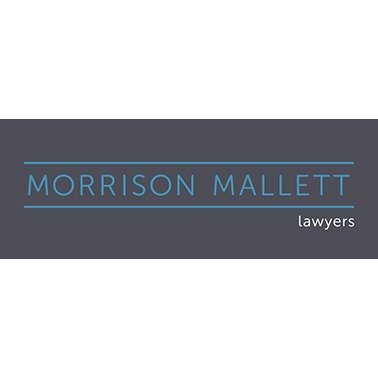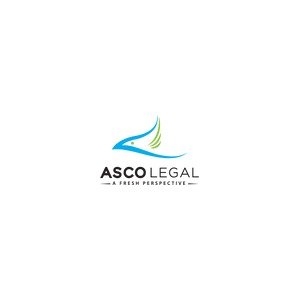Best Tax Increment Financing Lawyers in Auckland
Share your needs with us, get contacted by law firms.
Free. Takes 2 min.
List of the best lawyers in Auckland, New Zealand
About Tax Increment Financing Law in Auckland, New Zealand
Tax Increment Financing (TIF) is a public financing method used to promote economic development and revitalization of urban areas. In Auckland, New Zealand, TIF is employed as a tool to support infrastructure development, improve public services, and enhance community facilities. TIF works by capturing the increased property tax revenue generated from rising property values in a designated area, typically resulting from new development or redevelopment initiatives. These funds are then reinvested into the community to spur further economic growth and development.
Why You May Need a Lawyer
Individuals and businesses may need legal assistance with TIF in a variety of situations. Some common instances include:
- Understanding the eligibility criteria for TIF funding and applications.
- Navigating complex TIF agreements and ensuring compliance with all legal requirements.
- Resolving disputes or challenges related to property valuations and tax assessments.
- Assisting in the negotiation of development agreements or partnerships involving TIF funding.
- Advising on the financial implications and tax obligations associated with benefiting from a TIF project.
Local Laws Overview
Auckland's TIF framework operates within the broader context of New Zealand's legislative environment, particularly under the Local Government Act 2002 and the Resource Management Act 1991. Key aspects include:
- Designated TIF Districts: These are specific areas identified by local authorities where TIF can be applied to support targeted development projects.
- Public Engagement: Local councils are required to engage with communities when establishing TIF districts, ensuring transparency and public input.
- Revenue Allocation: The allocation of tax increments must directly support infrastructure and community improvements within the TIF district.
- Project Evaluation: TIF projects must demonstrate a positive impact on economic development and align with broader regional planning objectives.
Frequently Asked Questions
What is the main purpose of TIF in Auckland?
TIF is primarily used to stimulate economic development and enhance infrastructure within designated areas in Auckland, ultimately benefiting the wider community by increasing property values and economic activity.
How are TIF districts chosen?
TIF districts are selected based on criteria such as the potential for economic growth, need for revitalization, and alignment with regional planning strategies.
Can residential property owners apply for TIF funding?
Typically, TIF funding is aimed at commercial and industrial developments, but residential projects may qualify if they significantly contribute to the area's economic development goals.
Are there any risks associated with TIF?
Risks include potential fluctuations in property values and disputes over tax assessments, which could impact the expected revenue from increased property taxes.
What documentation is required for a TIF application?
Applicants must provide detailed project proposals, financial forecasts, and evidence of community engagement and support for the proposed development.
Who oversees TIF projects in Auckland?
Local government authorities, often in collaboration with regional economic development agencies, oversee TIF projects to ensure compliance and alignment with community goals.
How is public input incorporated into TIF decisions?
Through public consultations, hearings, and stakeholder meetings, local councils gather community feedback to incorporate into TIF project planning and implementation.
Do TIF projects receive full funding from increased taxes?
Not always. TIF funding may only cover part of a project's costs, with additional funds sourced from developers or other government support programs.
Are there alternative financing options to TIF?
Yes, alternative options include public-private partnerships, grants, and loans to finance development and infrastructure projects.
How long do TIF districts typically last?
The duration of a TIF district varies but usually ranges from 15 to 30 years, depending on the scope and objectives of the development project.
Additional Resources
Several resources and organizations can provide more information and assistance regarding TIF in Auckland:
- Auckland Council: Offers guidance and support on local planning and development matters.
- Ministry of Business, Innovation & Employment: Provides insights into regional economic development initiatives.
- Economic Development Agencies: Offer resources and advice on project financing and investment opportunities.
Next Steps
If you need legal assistance with TIF in Auckland, consider the following steps:
- Contact a legal professional specializing in property and development law to discuss your specific needs and circumstances.
- Gather all relevant documentation, including property details, project proposals, and any correspondence with local authorities.
- Arrange an initial consultation with your lawyer to assess the legal aspects of your situation and explore potential solutions.
- Stay informed about local regulations and policy updates related to TIF and economic development in Auckland.
Lawzana helps you find the best lawyers and law firms in Auckland through a curated and pre-screened list of qualified legal professionals. Our platform offers rankings and detailed profiles of attorneys and law firms, allowing you to compare based on practice areas, including Tax Increment Financing, experience, and client feedback.
Each profile includes a description of the firm's areas of practice, client reviews, team members and partners, year of establishment, spoken languages, office locations, contact information, social media presence, and any published articles or resources. Most firms on our platform speak English and are experienced in both local and international legal matters.
Get a quote from top-rated law firms in Auckland, New Zealand — quickly, securely, and without unnecessary hassle.
Disclaimer:
The information provided on this page is for general informational purposes only and does not constitute legal advice. While we strive to ensure the accuracy and relevance of the content, legal information may change over time, and interpretations of the law can vary. You should always consult with a qualified legal professional for advice specific to your situation.
We disclaim all liability for actions taken or not taken based on the content of this page. If you believe any information is incorrect or outdated, please contact us, and we will review and update it where appropriate.

















